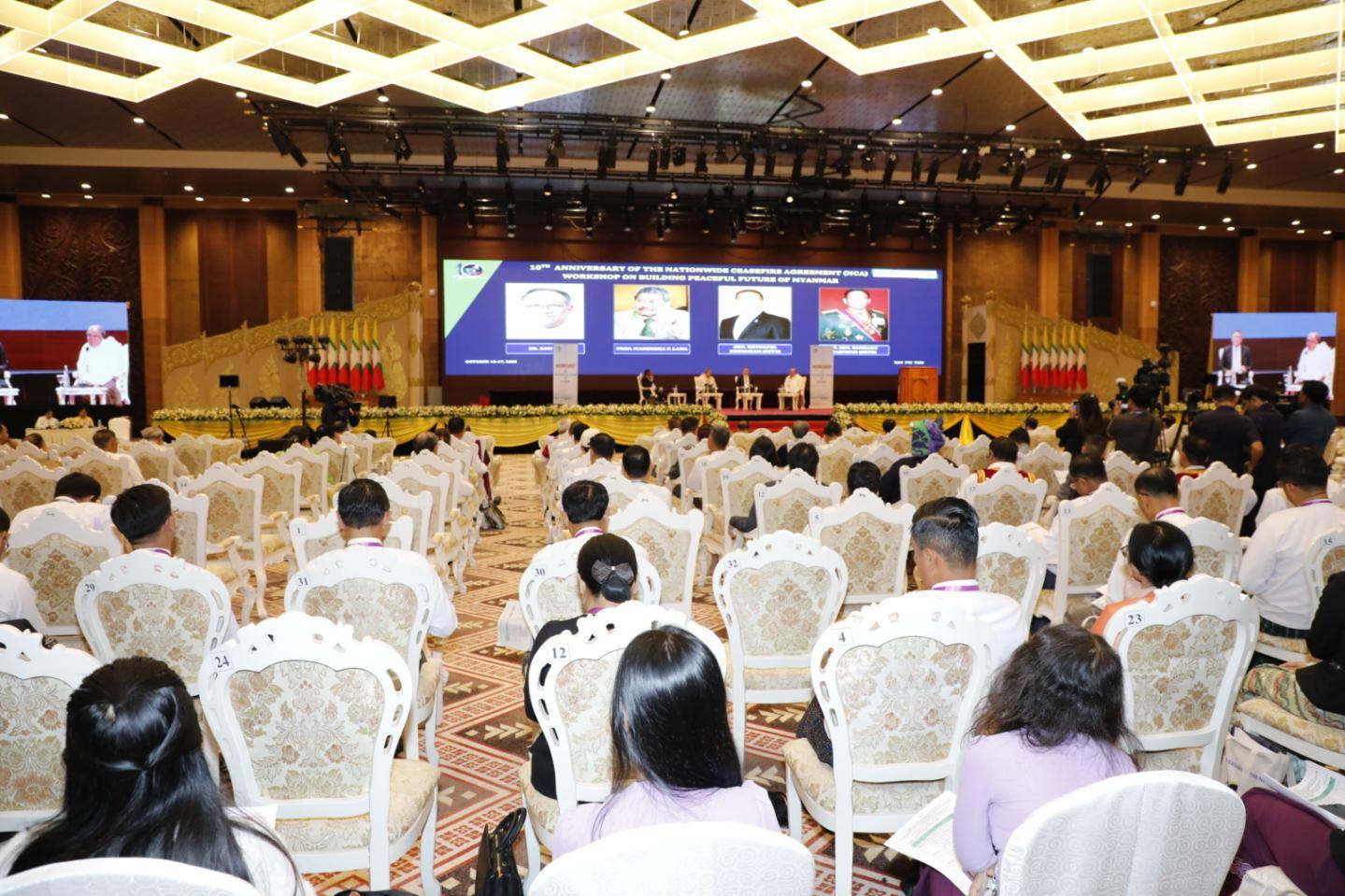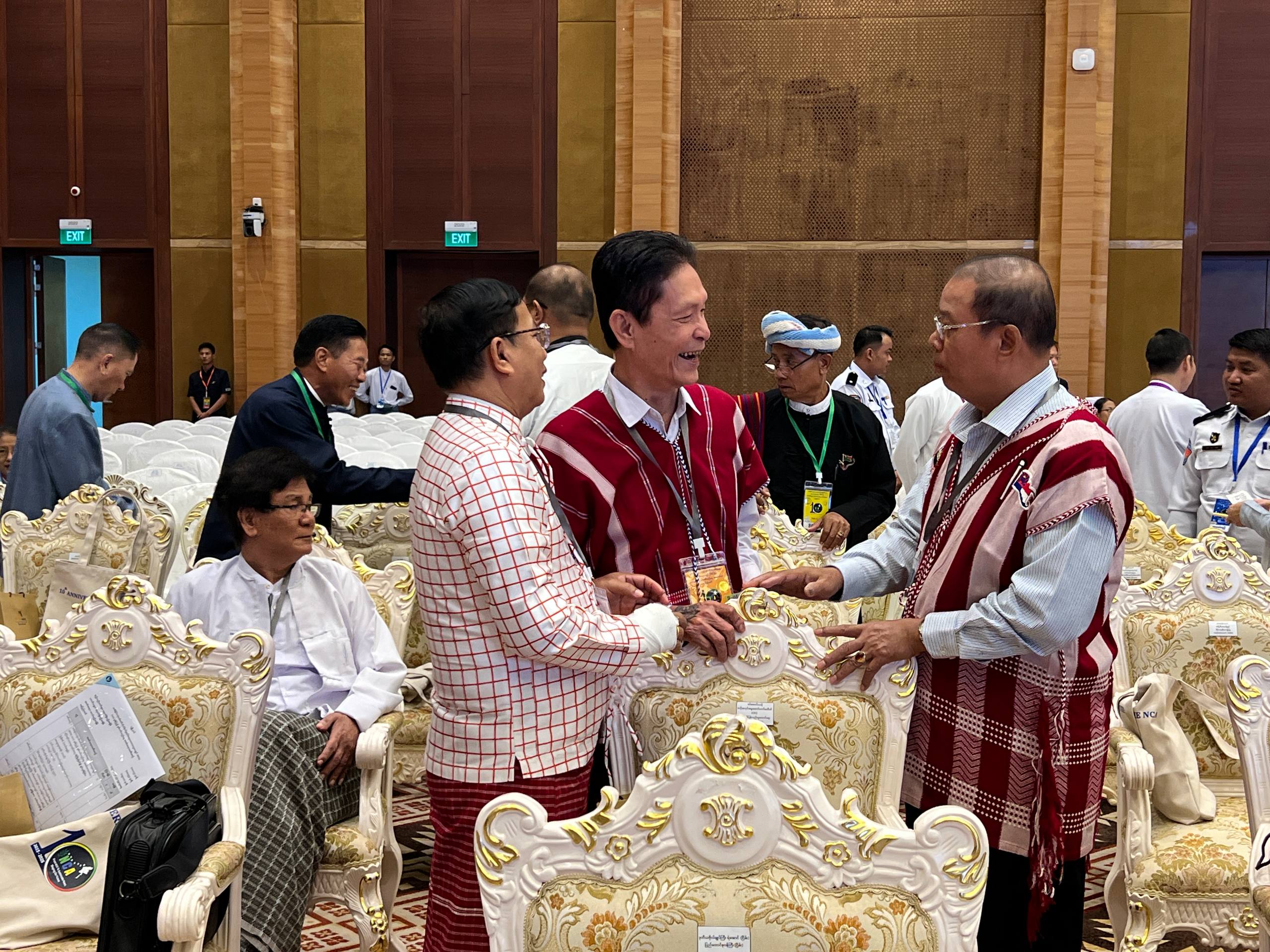CNI News
23 October 2025
Military and political analysts are raising concerns about whether the recommendations from the "Building a Peaceful Future for Myanmar" workshop, held in Nay Pyi Taw recently, can be practically implemented.
It is reported that the workshop, held in Nay Pyi Taw from October 15 to 17, 2025, resulted in 101 recommendations, with 48 recommendations in the political sector and 53 recommendations in the economic sector.
Dr. Nyo Nyo Thin, Chairperson of the Yangon Watch Group, told CNI news agency that if even one-third of these recommendations, not necessarily all of them, could be implemented, it would have significant visible consequences for Myanmar's affairs.
She said, "These recommendations don't require a lot of work. Try to implement about half; even if you can't do half, try one-third, and you will reap many obvious benefits. But in reality, they are often not implemented. That's why we encourage and motivate the leaders to make them happen. The main thing is the next government. These discussion recommendations are action plans for the next government. Therefore, we hope that the leaders of the next government will implement them, as these are suggestions made by the public and experts for the sake of the country and the economy."

Holding the workshop
It is still unclear whether the current administrative body will implement the 101 recommendations from the "Building a Peaceful Future for Myanmar" workshop, or if the new government that comes into power after the election will implement them.
Moreover, military and political analysts point out that questions remain, such as whether the Parliament (Hluttaw) will implement them, or if the implementation will require presentation to and approval by the Parliament, or if implementation can only proceed after receiving other discussion points and full approval.
Dr. Nyo Nyo Thin, who attended the workshop, stated that most of the recommendations from the workshop do not need to be carried out in Parliament but should be implemented by the leaders of the government.
Dr. Aung Myo, a Myanmar political analyst, told CNI news agency that if the government prepares and implements these recommendations in the best way possible, the desire for armed resistance could decrease.

Holding the workshop
He said, "It will certainly have an impact. In any case, ethnic groups will be satisfied. Economic development will also be achieved. In any case, the country's situation will improve to some extent. That's because if the government creates a better administrative system and environment, it will be a positive factor to some extent in suppressing internal insurgency. We believe that if the government prepares well, the desire to resort to armed opposition will also decrease."
Those who attended the workshop said that the recommendations included suggestions for political and economic reforms that should be carried out within the first 100 days after a new government is formed, as well as conditions that would allow for greater participation of civilian leaders needed for the future state.
In Myanmar, the Union Agreements reached at the "Union Peace Conference" held under U Thein Sein in 2016 and the "21st Century Panglong - Union Peace Conference" held under Daw Aung San Suu Kyi have not been implemented to this day, despite being approved by Parliament.




